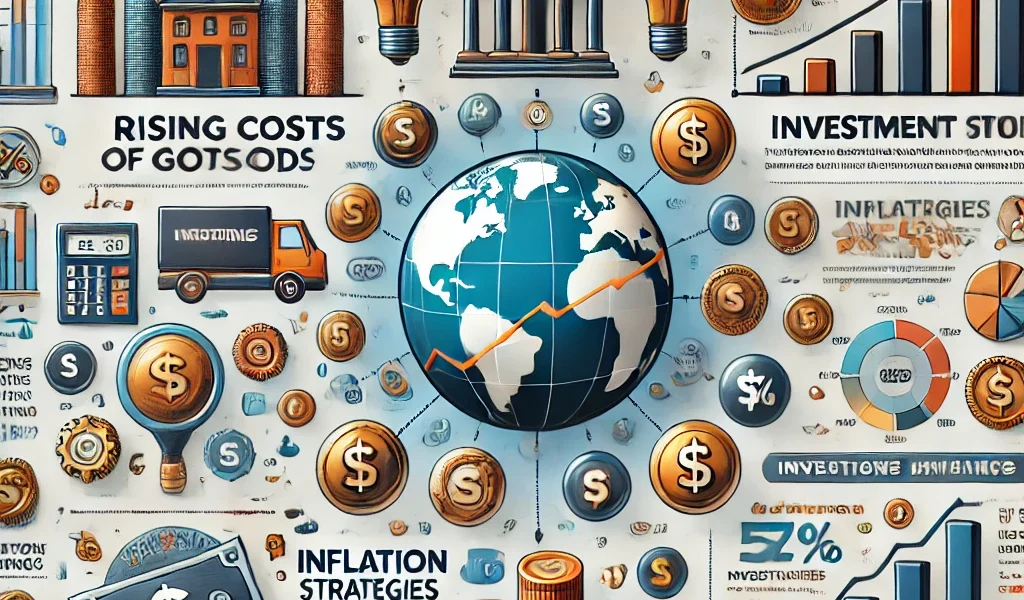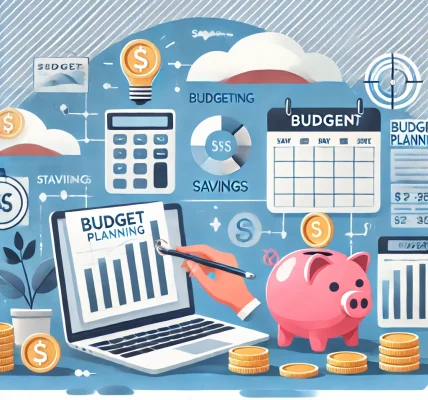Introduction
Inflation is one of the most significant financial factors that can erode the value of your savings over time. While a steady rate of inflation is a natural part of a growing economy, excessive inflation can significantly impact purchasing power, investment returns, and long-term wealth accumulation.
Understanding how inflation affects your savings and implementing strategies to protect them is crucial for financial stability. This guide will help you navigate inflation and safeguard your hard-earned money.
What is Inflation?
Inflation refers to the rise in the general price level of goods and services over time. It is typically measured using indices such as:
- Consumer Price Index (CPI): Tracks the price changes of a basket of consumer goods and services.
- Producer Price Index (PPI): Measures the average changes in selling prices received by domestic producers.
- Core Inflation: Excludes volatile items like food and energy to provide a clearer view of long-term inflation trends.
A moderate level of inflation (around 2% per year) is generally considered beneficial for economic growth. However, when inflation outpaces income growth, it reduces purchasing power and affects savings.
How Inflation Erodes Your Savings
1. Decline in Purchasing Power
If your savings remain in a low-interest savings account, inflation reduces the value of your money over time. For example, if inflation is at 3% annually and your bank offers a 1% interest rate, your real purchasing power decreases by 2% each year.
2. Lower Real Interest Rates
Most traditional savings accounts offer interest rates lower than the inflation rate. If inflation rises while your savings earn minimal interest, your money loses value in real terms.
3. Impact on Fixed-Income Investments
Fixed-income investments, such as bonds or certificates of deposit (CDs), provide predetermined interest rates. However, if inflation rises unexpectedly, these investments may fail to keep pace with the rising cost of living.
4. Erosion of Retirement Savings
Inflation can significantly impact long-term savings for retirement. A $1 million retirement fund today may not provide the same purchasing power in 20 or 30 years.
How to Protect Your Savings from Inflation
1. Invest in Inflation-Protected Securities
- Treasury Inflation-Protected Securities (TIPS): Issued by the U.S. government, TIPS adjust with inflation, ensuring your investment maintains purchasing power.
- Inflation-Linked Bonds: Some corporate and municipal bonds also provide inflation protection.
2. Diversify Investments
Holding a mix of asset classes can help mitigate the effects of inflation:
- Stocks: Historically, equities have outpaced inflation over the long term.
- Real Estate: Property values and rental income often rise with inflation.
- Commodities: Assets like gold, silver, and oil tend to perform well during inflationary periods.
- Cryptocurrency: While highly volatile, some investors consider crypto as a hedge against inflation.
3. Increase Contributions to Retirement Accounts
To combat inflation, consider increasing contributions to your 401(k), IRA, or Roth IRA. Look for investment options with inflation-beating returns, such as stock index funds or diversified portfolios.
4. Utilize High-Yield Savings Accounts and CDs
- High-Yield Savings Accounts: Some banks offer interest rates that are closer to or exceed inflation rates.
- Laddered Certificates of Deposit (CDs): Spreading funds across multiple CDs with varying maturity dates helps balance interest earnings and liquidity.
5. Consider Real Assets
- Real Estate Investment Trusts (REITs): These allow investors to earn returns from real estate without directly owning properties.
- Farmland and Natural Resources: Inflation tends to boost the value of agricultural land and natural resources.
6. Reduce Cash Holdings
While it’s essential to have emergency savings, holding excessive cash in low-yield accounts can lead to depreciation due to inflation. Keep only what you need for short-term expenses and emergencies.
7. Take Advantage of Tax-Advantaged Accounts
Using tax-efficient investment strategies can help your money grow faster than inflation. Options include:
- Health Savings Accounts (HSAs): Triple-tax benefits (tax-free contributions, growth, and withdrawals for medical expenses).
- 529 Plans: Tax-advantaged savings for education expenses.
- Roth IRA: Tax-free withdrawals in retirement.
8. Stay Informed and Adjust Your Strategy
Monitor inflation trends, interest rates, and economic indicators. Regularly reviewing and adjusting your investment portfolio ensures that your money continues to grow despite inflationary pressures.
Conclusion
Inflation is an unavoidable financial factor, but with proactive planning and smart investment strategies, you can protect your savings from its eroding effects. By diversifying investments, leveraging inflation-protected securities, increasing retirement contributions, and utilizing high-yield accounts, you can maintain and grow your wealth over time.
Stay informed and adapt your financial strategy to ensure your savings continue to work for you, even in an inflationary economy.




